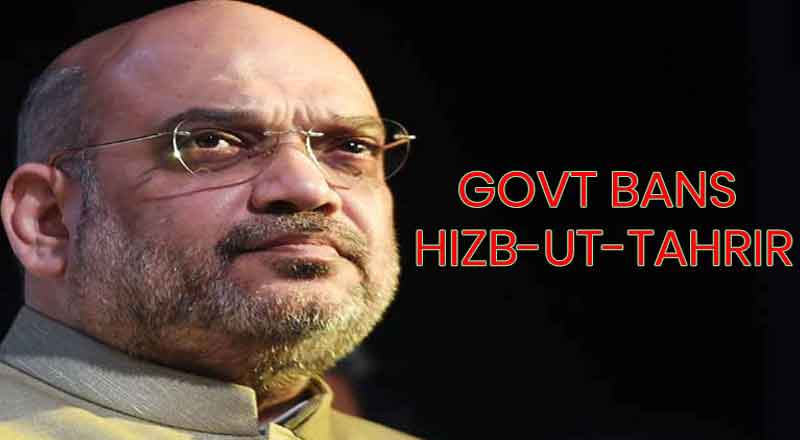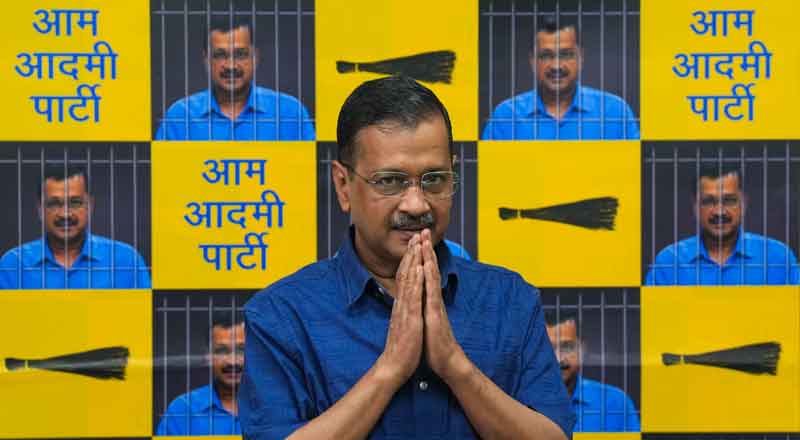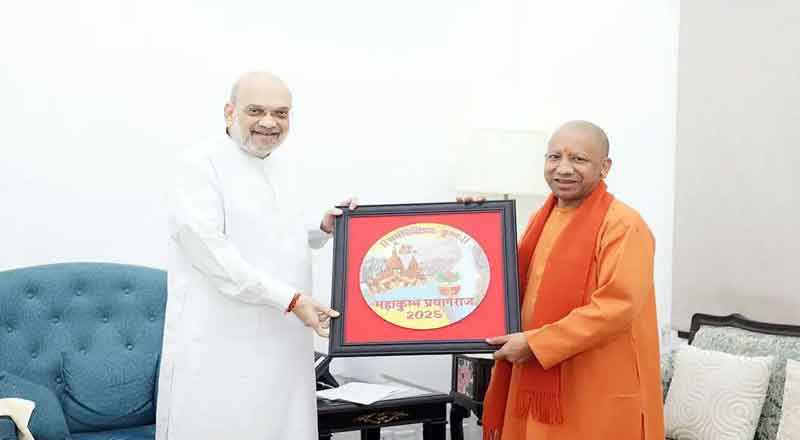Radical Pan-Islamic Group Declared a “Banned Outfit”
In a decisive move aimed at protecting national security, the Ministry of Home Affairs (MHA) has declared the global pan-Islamic group Hizb-Ut-Tahrir (HuT) a “banned outfit.” The organization, which seeks to establish an Islamic caliphate globally, including in India, has been accused of promoting violent jihad as a means to overthrow democratic governments. The government expressed deep concern over HuT’s efforts to destabilize the democratic framework, describing the group as a “grave threat” to India’s internal security.
According to the official notification issued by the MHA, HuT has been actively involved in radicalizing and recruiting vulnerable youth to join terrorist organizations, including ISIS. Using social media, encrypted apps, and Dawah (religious preaching) meetings, HuT promotes extremism and encourages its followers to engage in acts of terrorism.
Involvement in Terrorism and Radicalization
The MHA’s notification highlighted that Hizb-Ut-Tahrir has been involved in numerous terrorist activities within India, making its operations a serious threat to the nation. The group is now banned under the Unlawful Activities (Prevention) Act (UAPA), 1967, a crucial legal tool used by the Indian government to curb terrorism and maintain public order.
The ban comes in the wake of the Tamil Nadu Hizb-Ut-Tahrir case, where multiple arrests were made, including Faizul Rahman, a state leader of the HuT, along with other members. The National Investigation Agency (NIA) reported that Rahman and his associates were spreading HuT’s radical ideology, seeking to establish an Islamic caliphate in India by manipulating youth through secret meetings and encrypted communication platforms. Investigations have also revealed that the group was attempting to form alliances with forces hostile to India in order to achieve its objectives.
Tamil Nadu Case Highlights HuT’s Dangerous Agenda
The Tamil Nadu case, which led to the arrest of several HuT members, shed light on the organization’s recruitment and radicalization methods. According to the NIA, secret “Bayaans” (meetings) were conducted where vulnerable youth were indoctrinated with the group’s extremist ideologies. The accused were found to be spreading divisive and violent messages on behalf of HuT’s Central Media Office, encouraging anti-government and anti-democratic sentiments.
One of the key individuals involved, Aziz Ahamed, played a leading role in organizing these secret gatherings. The investigations revealed that HuT was attempting to gain military assistance from foreign forces hostile to India, in order to advance its agenda of establishing an Islamic caliphate. This extremist ideology was in direct opposition to India’s democratic and secular values.
What is Hizb-Ut-Tahrir?
Hizb-Ut-Tahrir, meaning “Party of Liberation” in Arabic, was founded in Jerusalem in 1953 with the goal of re-establishing a global Islamic caliphate. While the group claims to pursue its objectives through non-military means, its involvement in radicalization and support for terrorism has led to its ban in several countries.
The organization has been outlawed in nations such as Bangladesh, Jordan, Turkey, Saudi Arabia, and the United Kingdom. Earlier this year, the UK government designated HuT as a terrorist organization, citing its support for violent activities, including its praise of the October 7 attacks by Hamas. UK officials have labeled HuT as antisemitic and accused it of actively promoting terrorism.
HuT has significant influence in regions like the West Bank, where it has hundreds of members despite facing repression from local authorities. The group’s website openly supports violent opposition against Israel, and its language is often laced with antisemitism and hateful rhetoric.
Arrests and Crackdown in India
The recent ban comes on the heels of multiple arrests conducted by the NIA across Tamil Nadu and Puducherry. Six HuT members were taken into custody in connection with anti-national activities, with the central figure being Faizul Rahman, the state leader of the organization. Among those arrested were a man in his fifties, his two sons, and three others aged between 26 and 33. Investigations revealed that they were involved in anti-democratic campaigns, including propaganda against elections and advocating for jihad against the Indian state.
The accused, including Hameed Hussain, a former engineering professor, used social media and private meetings to propagate HuT’s ideology. Hussain, along with his father, Mansoor, was found to be promoting the idea that democracy is man-made and inherently flawed, urging followers to reject democratic systems in favor of an Islamic state.
Threat to National Security
HuT’s ban in India underscores the government’s commitment to safeguarding national security against extremist ideologies. By recruiting vulnerable individuals and promoting terrorism, the group poses a significant risk to the democratic and secular fabric of the country. The organization’s rejection of democratic principles, coupled with its call for jihad, makes it a dangerous force that must be curtailed to ensure the safety and stability of the nation.
With the provisions of the UAPA now invoked, authorities are taking stringent action to dismantle HuT’s network and prevent its radical ideology from taking root in India. The ban is part of a broader strategy to combat terrorism and extremism within the country, aiming to protect the nation’s democratic institutions and maintain internal security.
(With inputs from agencies)





